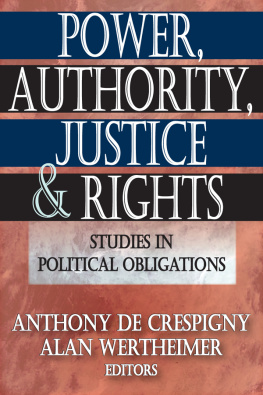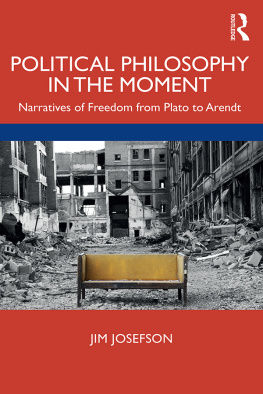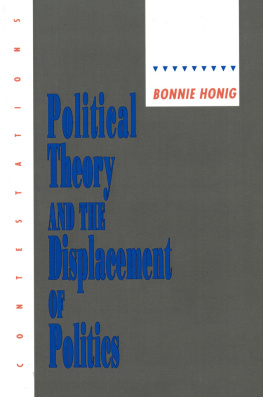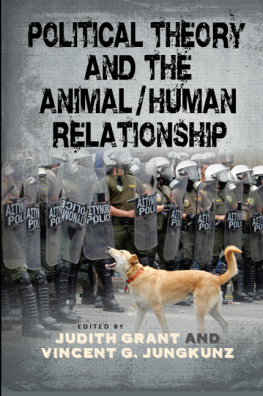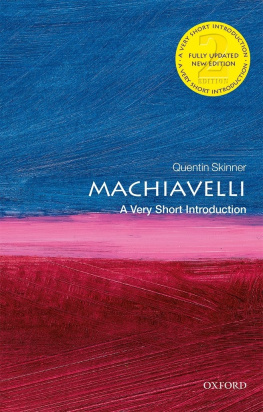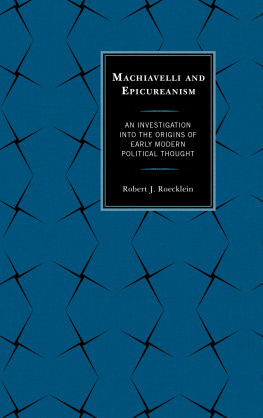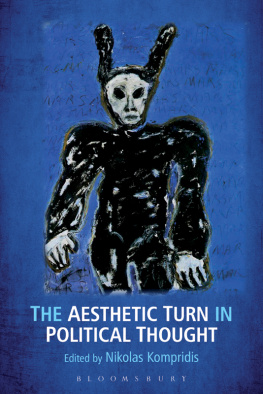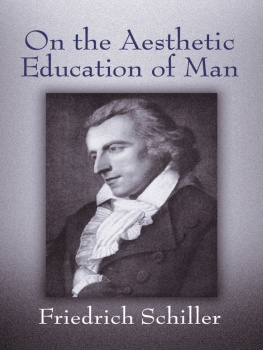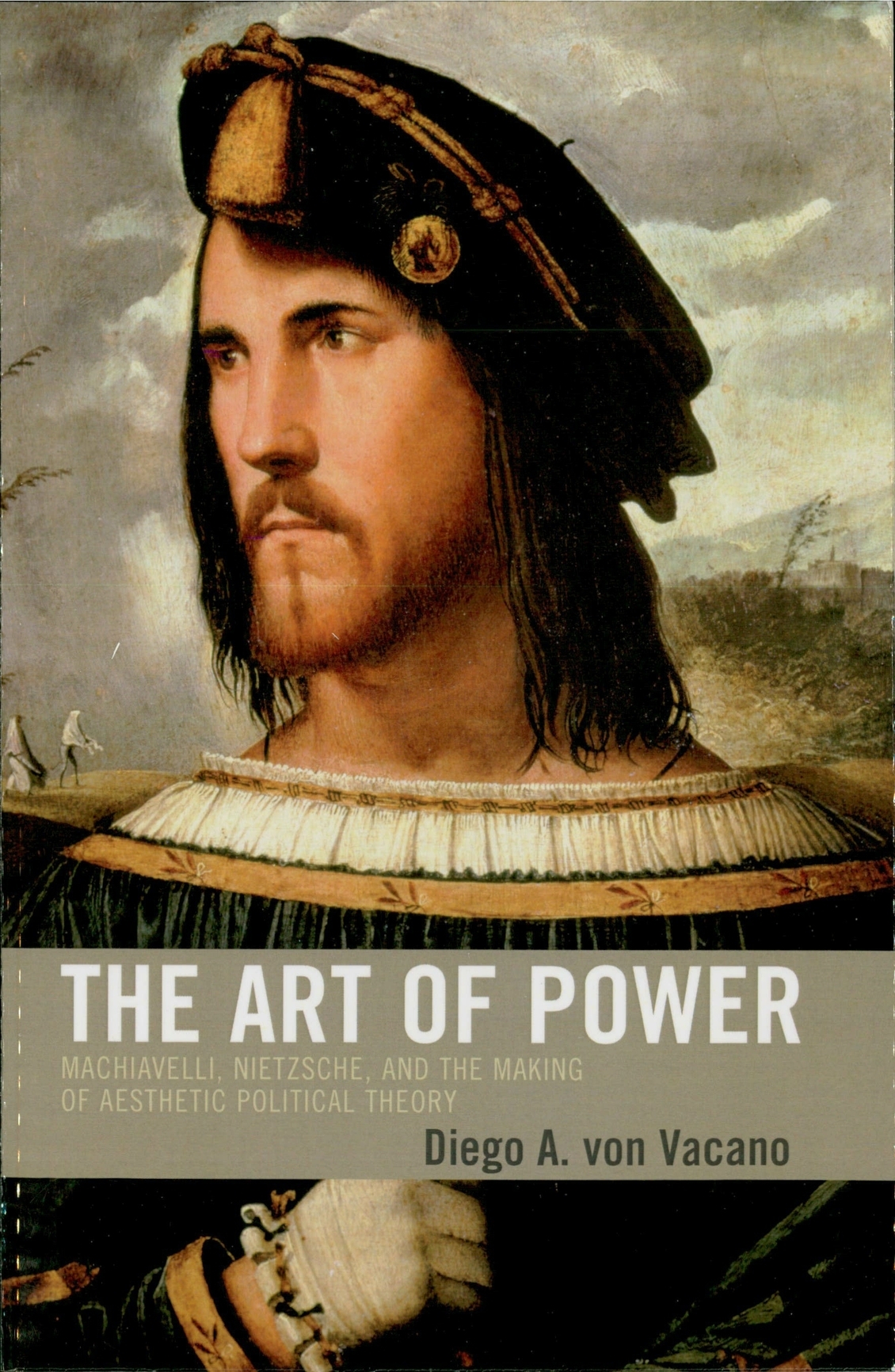Diego A. von Vacano is assistant professor of political science at Texas A&M University. He has served on the faculties of Hunter College CUNY, Vassar College, and Williams College. He was also a Visiting Scholar in Latin American Studies at Columbia University. Originally from Bolivia, he holds a bachelors degree in Social Studies from Wesleyan University, a masters in Public Policy from Harvard University, and a doctorate in Politics from Princeton University.
Bibliography
Adorno, Theodor. Aesthetic Theory. Minneapolis, MN: University of Minnesota Press, 1997.
Allison, David. The New Nietzsche. New York: Dell, 1977.
Althusser, Louis. Machiavel et nous, in crits Philosophiques et Politiques, vol. 2. Paris: Stock/IMEC, 1995.
Anderson, Benedict. Imagined Communities. London: Verso, 1983.
Ansell-Pearson, Keith. Nietzsche contra Rousseau. Cambridge: Cambridge University Press, 1991.
. An Introduction to Nietzsche as Political Thinker. Cambridge: Cambridge University Press, 1994.
Appel, Fredrick. Nietzsche Contra Democracy. Ithaca: Cornell University Press, 1999.
Apuleius. The Golden Ass. Translated by P.G. Walsh. Oxford: Oxford University Press, 1995.
Arendt, Hannah. The Human Condition. Chicago: The University of Chicago Press, 1959.
. Between Past and Future. New York: Viking, 1968.
Aristotle. The Politics. Translated by Carnes Lord. Chicago: The University of Chicago Press, 1984.
Aron, Raymond. Machiavel et les tyrannies modernes. Paris: Editions de Fallois, 1993.
Ball, Terence. The Picaresque Prince. Political Theory 12 (November 1984): 524-25.
Barnes, Jonathan, ed. The Cambridge Companion to Aristotle. Cambridge: Cambridge University Press, 1995.
Baron, Hans. The Crisis of the Early Italian Renaissance. Princeton: Princeton University Press, 1966.
Baumgarten, Alexander. Reflections on Poetry. Berkeley: University of California Press, 1954.
Beardsley, Monroe. The Aesthetic Point of View. Ithaca: Cornell University Press, 1982.
Bell, Clive. Art. New York: Capricorn, 1958.
Benjamin, Walter. Illuminations. New York: Harcourt Brace, 1968.
Berkowitz, Peter. Nietzsche: The Ethics of an Immoralist. Cambridge: Harvard University Press, 1995.
Berlin, Isaiah. The Originality of Machiavelli, in Against the Current. New York: Viking Press, 1971.
Boardman, John, ed. The Oxford History of the Classical World. New York: Oxford University Press, 1986.
Bock, Gisela, Quentin Skinner, and Maurizio Viroli, eds. Machiavelli and Republicanism. Cambridge: Cambridge University Press, 1990.
Borradori, Giovanna. Philosophy in a Time of Terror. Chicago: University of Chicago Press, 2003.
Bourdieu, Pierre. The Field of Cultural Production. New York: Columbia University Press, 1993.
Brudney, Kent. Machiavelli on Social Class and Class Conflict. Political Theory 12 (November 1984): 507-519.
Butterfield, Herbert. Machiavellis Statecraft. New York: Collier, 1962.
Burckhardt, Jacob. The Civilization of the Renaissance in Italy. Translated by S. Middlemore. New York: Penguin, 1990.
Caffi, Emesto. Nietzsches Stellung zu Machiavellis Lehre, ein literarischphilosophischer Essai. Wien: Verlag des Verfassers, 1912.
Camus, Albert. Letranger. Paris: Gallimard, 1974.
. The Myth of Sisyphus. New York: Knopf, 1975.
Carroll, Noel. Philosophy of Art. London: Routledge, 1999.
. Theories of Art Today. Madison, WI: University of Wisconsin Press, 2000.
. Beyond Philosophical Aesthetics. Cambridge: Cambridge University Press, 2001.
Chabod. Federico, Machiavelli and the Renaissance. Translated by David Moore. London: Bowes and Bowes, 1958.
Chamberlain, Leslie. Nietzsche in Turin. New York: Picador, 1998.
Chytry, Josef. The Aesthetic State. Berkeley: The University of California Press, 1989.
Codevila, Angelo. Words and Power, in The Prince. New Haven: Yale University Press, 1997.
Coleman, Janet. Machiavellis Via Moderna: Medieval and Renaissance Attitudes to History, in Niccol Machiavellis The Prince New Interdisciplinary Essays, editied by M. Coyle. Manchester, New York: Manchester University Press, 1995.
Colish, Marcia. The Idea of Liberty in Machiavelli. Journal of the History of Ideas 32 (July 1971):323-350.
Collingwood. Principles of Art. Oxford: Clarendon, 1938.
Conway, David. Nietzsche and the Political. New York: Routledge, 1997.
Cooper, David, ed. A Companion to Aesthetics. Cambridge: Blackwell, 1992.
Croce, Benedetto. Breviario di estetica. Milan: Adelphi, 1990.
Dante. The Portable Dante. Editied by M. Musa. New York: Penguin, 1995.
Danto, Arthur. Nietzsche as Philosopher. New York: Columbia University Press, 1965.
. Philosophical Disenfranchisement of Art. New York: Columbia University Press, 1986.
De Alvarez, Leo. The Machiavellian Enterprise. DeKalb: Northern Illinois University Press, 1999.
De Beistegui, Miguel. Heidegger and the Political. London: Routledge, 1998.
De Grazia, Sebastian. Crossing to Another World: Machiavelli and Others. Journal of the History of Ideas 45, (January 1984): 145-151.
. Machiavelli in Hell. Princeton: Princeton University Press, 1989.



